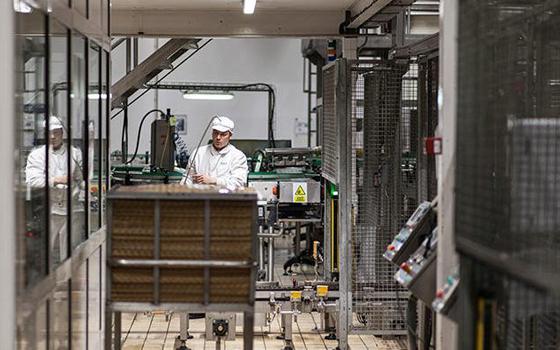Hero Food Industries is considering expanding in new markets as the company plans to increase its exports from local production by almost 50% in 2017, the company’s managing director Mohamed Bazan told Daily News Egypt.
“We need to hit EGP 500m exports in 2017, compared to EGP 250m last year,” Bazan explained.
He estimated the size of the company’s exports last year accounted for 34% of the total sales worth EGP 720m.
Hero owns the largest factory for the production of jam in the Middle East and North Africa (MENA) region, with exports to 30 countries. Hero also accounts for 55% of the jam market in Egypt.
When he was asked about his company’s exports to Qatar, Bazan confirmed that his company won’t be affected by the current crisis.
“Our exports to Qatar are not more than 2% from our total in the MENA region; it is not a heavily populated market,” he explained.
Bazan said that his sales volumes were badly affected by the pound’s flotation last November.
“The only thing that was affected is the volume, but the value is on the rise. The volume drop is due to a big drop in customer’s purchasing power in the wake of the flotation,” he explained.
But he also pointed out that the depreciation of the local currency’s value contributes to increasing the competitiveness of Egyptian products in external markets.
The Central Bank of Egypt (CBE) had issued a decision in November 2016 to float the pound, which brought down the currency’s value from EGP 8.88 to EGP 18 against the US dollar.
Hero had lifted the price of jam by 30% and that of baby food between 17% and 43%.
Bazan said that the company exports to 30 markets worldwide, with plans to enter ten new ones in 2017.
He pointed out that Arab countries account for the largest share (70%) of the company’s total exports. Of those, Saudi Arabia, the United Arab Emirates (UAE), Kuwait, Jordan, Tunisia, and Algeria had been the largest importers of the company’s products.
Moreover, Japan acquires 10% of the exports, while the remaining amount goes to South and North America.
He said that African countries—most prominently Sudan, Kenya, Ethiopia, and Nigeria—obtain a relatively small share of the company’s export volume.
He pointed out that Hero invested $5m to develop its plant, adding that new investments contribute to raising capacity.
Bazan said that the company had restructured the plant entirely and upgraded the machinery to improve the quality of final products, save energy, and protect the environment.
He stated that the company also aims to register growth rates of 10% per year over the coming five years.
Bazan stressed that the company does not intend to make any acquisitions in the coming period. He also refuted the rumours about listing the company’s shares on the Egyptian Exchange.
Hero had acquired 65% of Vitrac’s shares in 2002, and in 2005 it acquired the remaining shares before it changed the name to Hero.
Bazan said that the Swiss Hero achieved sales of CHF 1.2bn in 2016, noting that Egypt represents 4% of total worldwide sales.
He added that the company does not repatriate profits abroad, but reinvests them in the local market.
Daily News Egypt
31 July






















































